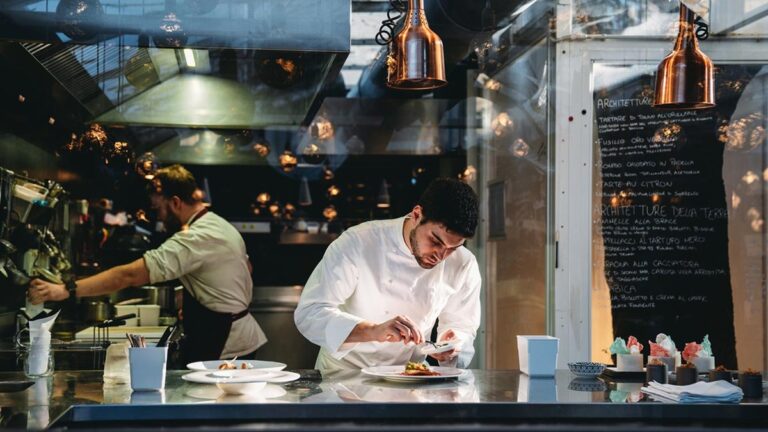
[ad_1]

When the holidays arrive, there’s an indisputable enchantment in the air as a Hotel Chef. There’s something quite wonderful about the atmosphere created by the clinking of glasses, the joyful laughter of visitors, and the crowded dining rooms. But behind the scenes, keeping an eye on food expenses and stock levels during the Holiday rush may be a difficult but important duty. To guarantee that our customers have a flawless dining experience, it takes careful preparation, smart thinking, and a little bit of imagination.
Also Read: 7 Indian Chefs Shining Bright With Michelin Star Restaurants
Here Are 7 Expert Tips To Manage Restaurant Kitchen During Holiday Season:
1. Planning with Precision
Planning beforehand is crucial since the number of diners tends to increase unexpectedly over the holidays. To precisely predict demand, one of the first stages is to analyse previous data. Using this data, a thorough menu plan can be made, guaranteeing that each meal is both delicious and reasonably priced.
2. Creative Menu Engineering
Crafting a holiday menu that is both crowd-pleasing and cost-efficient is a bit of an art form. Chefs should aim to use seasonal and local ingredients to take advantage of freshness and favourable pricing. Additionally, creativity in menu engineering can help in maximising the use of ingredients. For example, a base ingredient prepared differently can be used in multiple dishes, reducing food waste and overall costs.
3. Implementing Portion Control
A key component of controlling food expenses during the holiday rush is portion management. Standardised portion sizes and accurate measurements contribute to a decrease in food waste. It is essential to teach the kitchen workers the value of uniform portioning and presentation. This controls food prices in addition to guaranteeing that every meal that leaves the kitchen satisfies the same exacting standards.
4. Effective Inventory Management
The key to controlling food expenses is having a well-functioning inventory system. Keeping track of ingredient amounts can be facilitated by routine stock inspections and the use of technology for inventory management. In order to reduce spoilage and waste, it is imperative to establish a first-in, first-out (FIFO) system that prioritises the usage of older ingredients over newer ones.
5. Minimising Food Waste
Reducing food waste is an ethical and environmental practice as well as a way to save money. Set meals and holiday buffets ought to be created with this idea in mind. It’s also possible to find inventive ways to repurpose leftovers and kitchen scraps, transforming what may have been wasted into mouth-watering new recipes.
6. Staff Training and Communication
A knowledgeable and well-trained kitchen staff is a hotel chef’s best friend throughout the peak holiday season. The team may have a better understanding of the significance of cost control and efficient inventory management through frequent briefings and training sessions. Promoting open communication amongst the personnel, especially the procurement team, may aid in quickly resolving any problems and averting future snags.
7. Flexibility and Adaptability
Although careful planning is necessary, cooks also need to be ready for unanticipated events. The amount of diners and last-minute reservations over the holiday season might fluctuate, making the season unpredictable. Having the flexibility to quickly modify the menu and inventory while maintaining high standards of customer service may have a big impact on controlling food expenses.
Hotel Chefs face the challenging task of managing food costs and inventory during the holiday rush. To reduce costs without compromising quality, they must organize effectively, build strong vendor relationships, employ creative menu engineering, practice portion control, and maintain efficient inventory management. Minimizing food waste, providing staff training, and fostering communication are key to a successful holiday dining experience. Hotel Chefs excel when they balance seasonal charm with kitchen demands.
About the author: Dhanraj Koli is Sr. Sous Chef at The Park Navi Mumbai.
[ad_2]
Source link